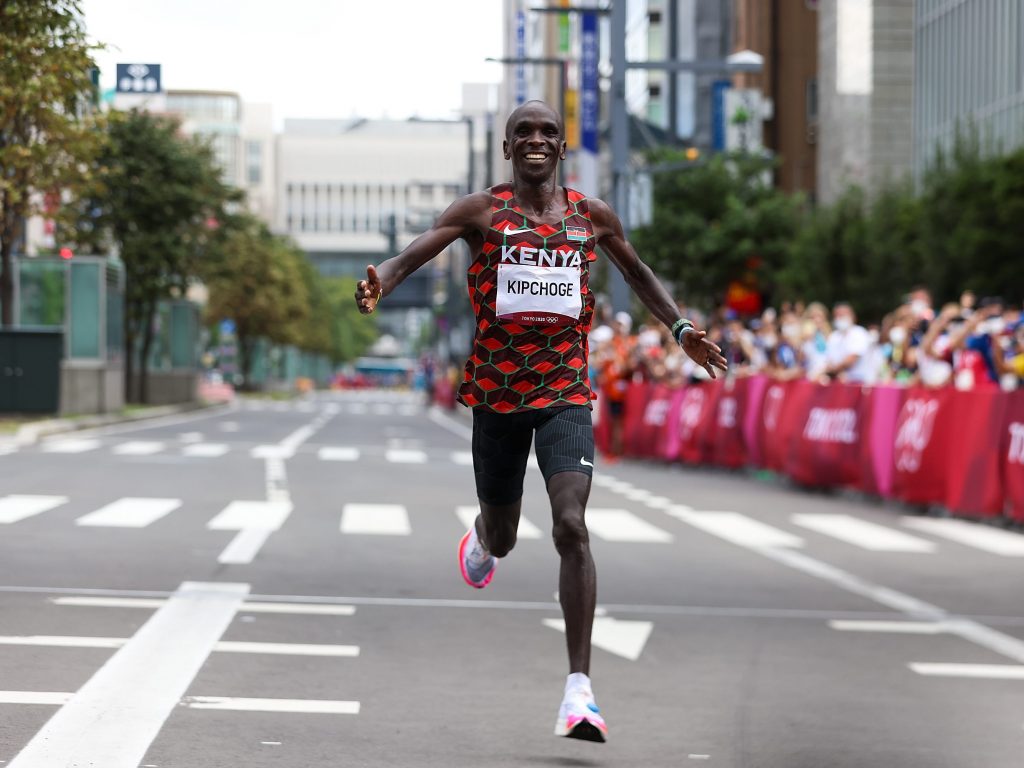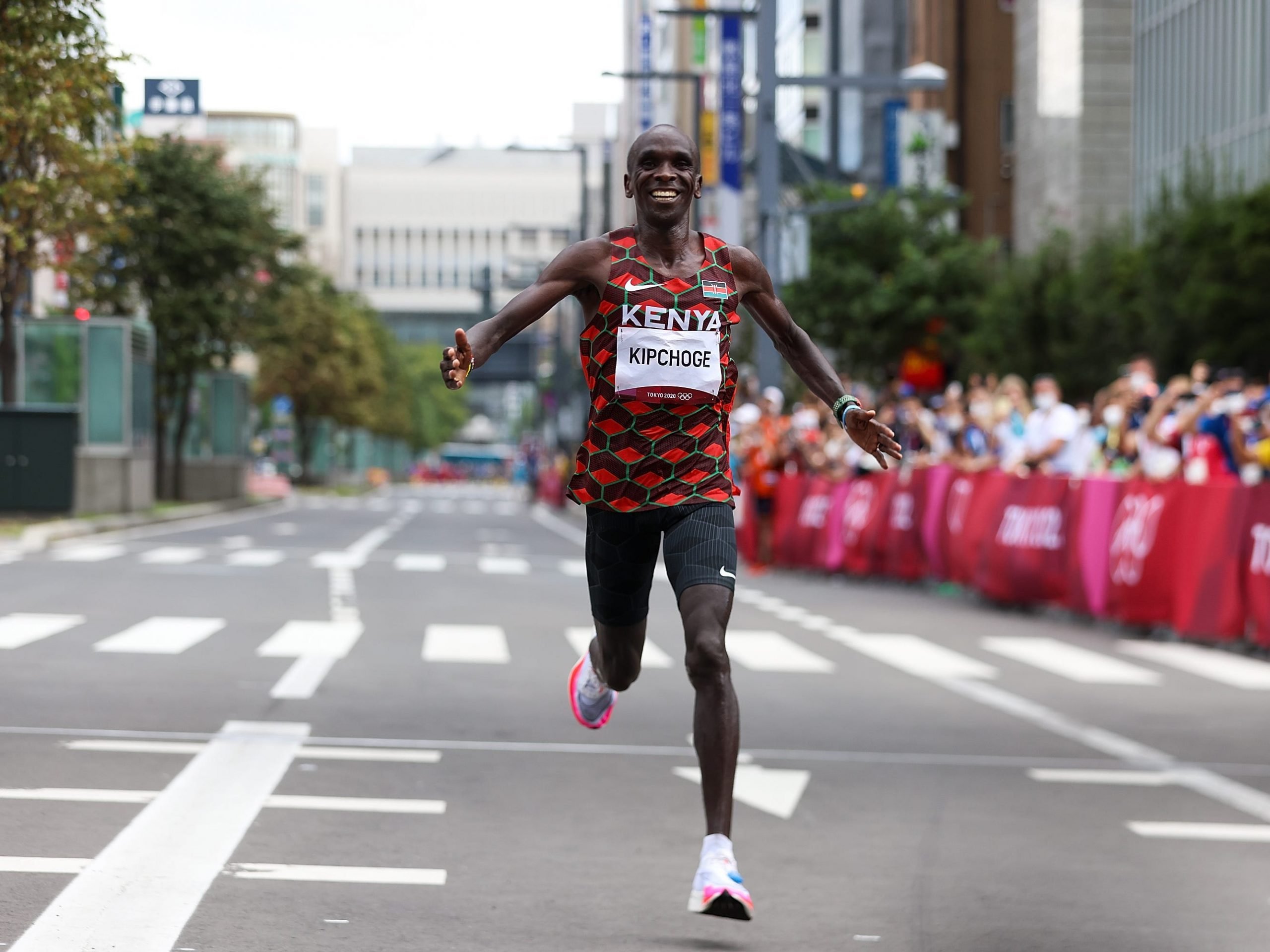
Lintao Zhang/Getty
- Kenyan runner Eliud Kipchoge won gold in the Tokyo Olympics marathon.
- Some runners and researchers say the Nike Vaporfly shoes Kipchoge wears confer an unfair advantage.
- But he emphatically told Insider that it's the runner, not the shoe, that determines performance.
- See more stories on Insider's business page.
Eliud Kipchoge is the best male marathoner in the world today.
The Kenyan runner won gold at the Tokyo Olympics and at the Rio Games in 2016. In 2018, he broke the marathon world record, finishing the Berlin race in 2 hours, 1 minute, and 39 seconds – more than a minute faster than the previous record.
But some researchers and competitors argue that Kipchoge's success has, in part, come from his shoes. Kipchoge has been sponsored by Nike for almost two decades. But his impressive feats have compounded in the last five years, following the debut of Nike's Vaporfly shoe technology.
Athletes wearing Nike Vaporflys, which debuted during the 2016 Olympics, dominated the marathon that year, and then every major long-distance road race thereafter. Studies have shown the Vaporfly's combination of carbon fiber and foam confers about 4% more energetic efficiency, which allows long-distance runners of Kipchoge's caliber to shave three minutes or more off their marathon times.
But when asked about critics who say Vaporfly technology confers an unfair advantage, Kipchoge's answer was unequivocal: It's the runner, not the shoe, that determines performance, he said.
"Even if the shoes are on, and you are not fit enough to run, then you cannot perform," Kipchoge told Insider. "Many, many people are assessing the shoes, but they are still performing the same. So the bottom line is they need to train more than they are training now if they are underperforming."
Nike's tech helped Kipchoge run a sub-2-hour marathon
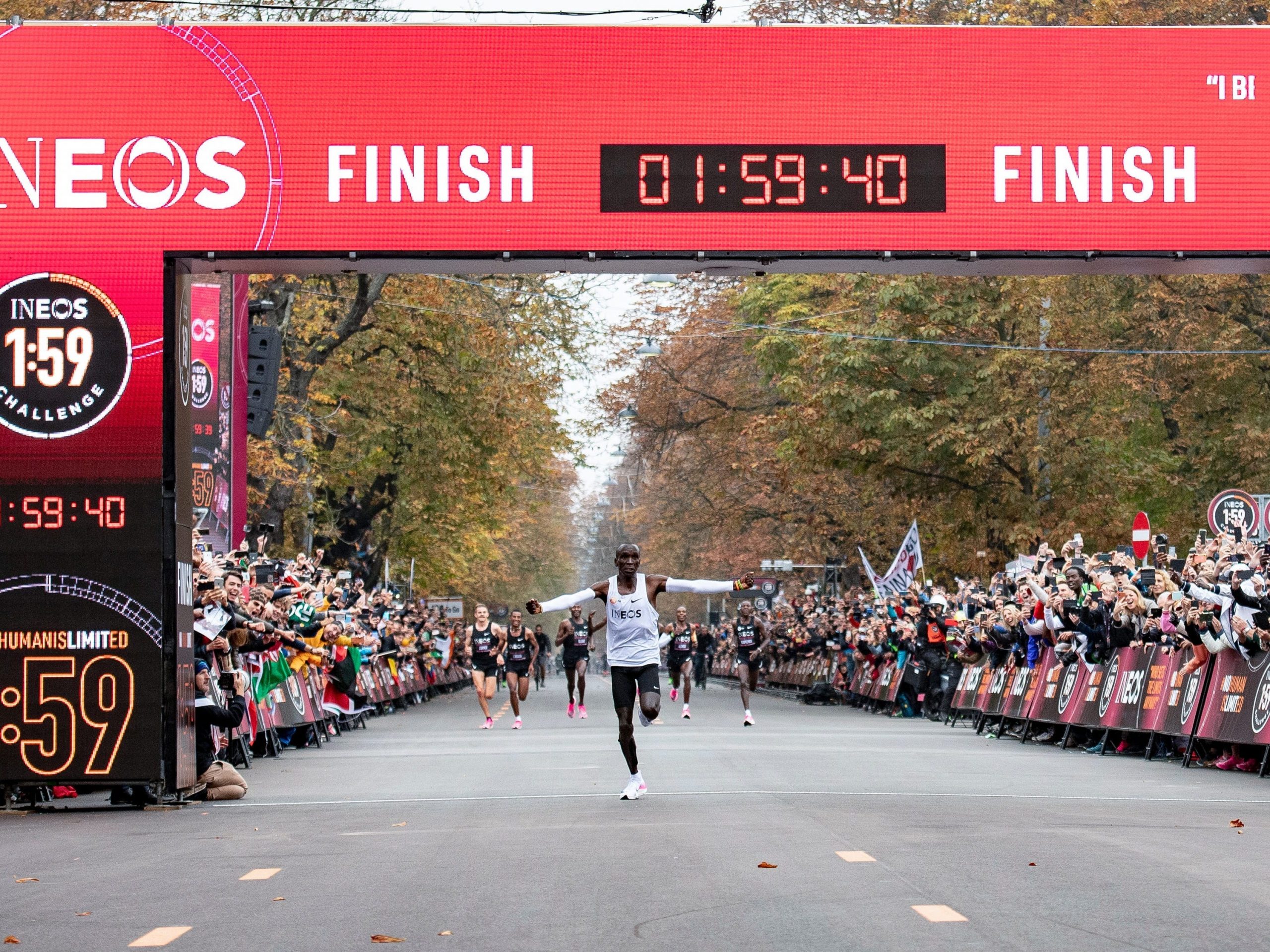
Courtesy of the DDA Group/"The Last Milestone"
Kipchoge is the only person in history to run a sub-2-hour marathon.
A new documentary, "Kipchoge: The Last Milestone," explores how he did that. The event, called the Ineos 1:59 challenge marathon, was designed specifically to help him achieve the feat in October 2019. Kipchoge had a phalanx of pacers throughout the marathon, which was held in Vienna, Austria, as well as a flat course and a team paying impeccable attention to his nutrition. He wore a Vaporfly prototype called the Alphafly, which incorporated two air pods under the shoe sole for added energy return per footfall.
Kipchoge finished in 1 hour, 59 minutes, and 40 seconds. But that, he said, was because of the specialized conditions.
"Without all the things surrounding me, I don't think I would've run fast," he said.
World Athletics, which governs most international track and field events, did not deem the feat a new world record because of the advantages that set Kipchoge's run apart from traditional marathons.
'Is it the technology or the athletes?'
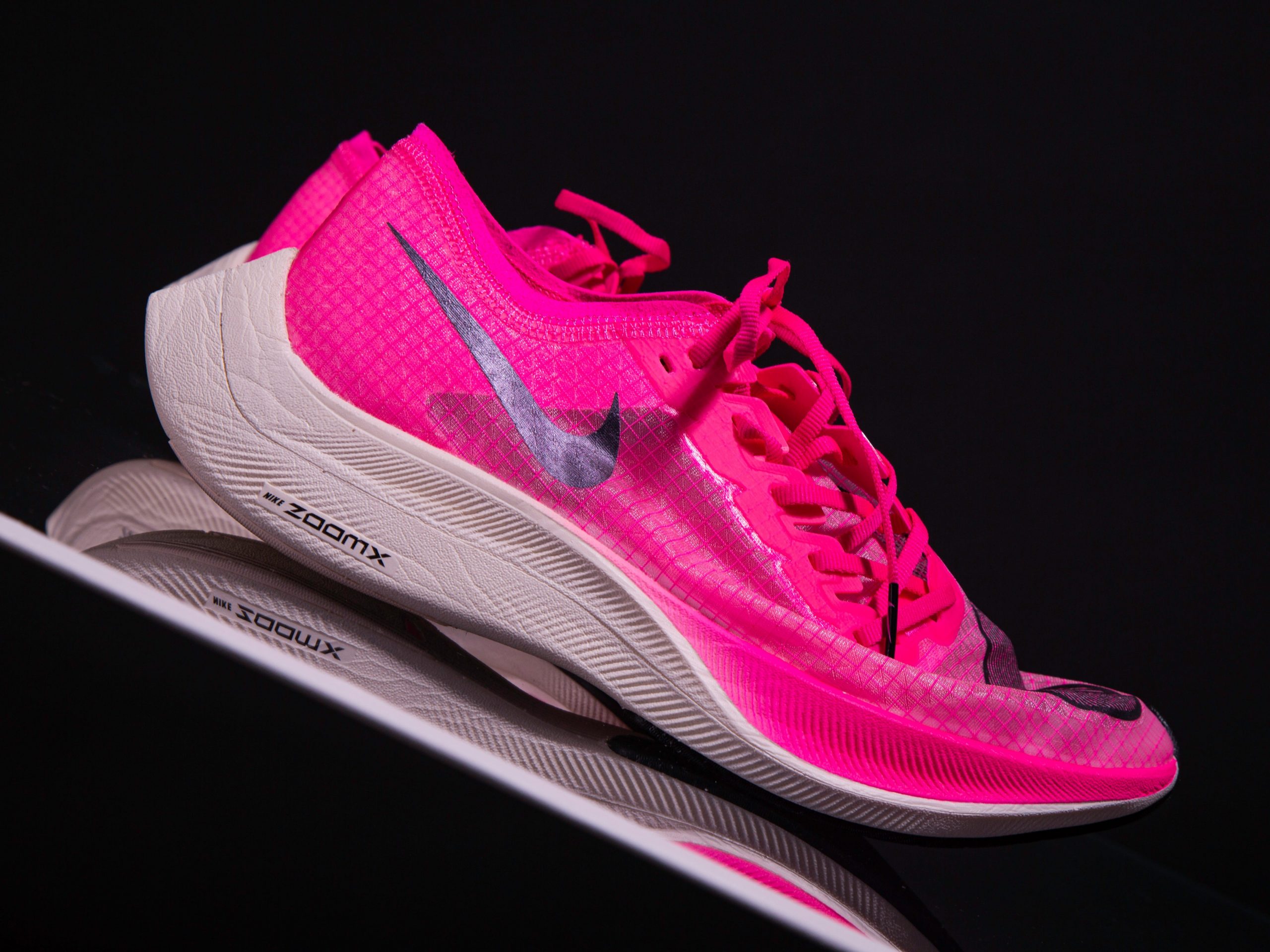
Crystal Cox/Business Insider
A 2017 study that analyzed early Vaporfly models predicted Kipchoge's accomplishment: "With these shoes, top athletes could run substantially faster and achieve the first sub-2-hour marathon," the researchers wrote.
The key is the shoes' lightweight carbon fiber and foam sole, which minimizes the energy lost per footfall. The foam in Vaporflys, which Nike named ZoomX, relies on a material called polyether block amide, or Pebax. After it gets squished, the resilient foam bounces back to its original shape, returning 85% of the energy that the runner used to compress it. By comparison, the ethylene foam in older running shoe soles gives back between 60% and 70%. The addition of the carbon-fiber plate helps the foam compress and expand quickly.
"The runner runs the race, but the shoe enables him or her to run it faster for the same effort or ability," Geoff Burns, a kinesiology researcher at the University of Michigan, previously told Insider of Vaporflys. "So for two athletes of equal ability on race day, the one with the shoes is going to beat the one without the shoes."
Kipchoge said the shoe also helps him recover. ZoomX is softer than its predecessors, offering athletes more comfort as it's compressed.
"The shoe absorbs a lot of pressure from the asphalt," he says in the documentary.
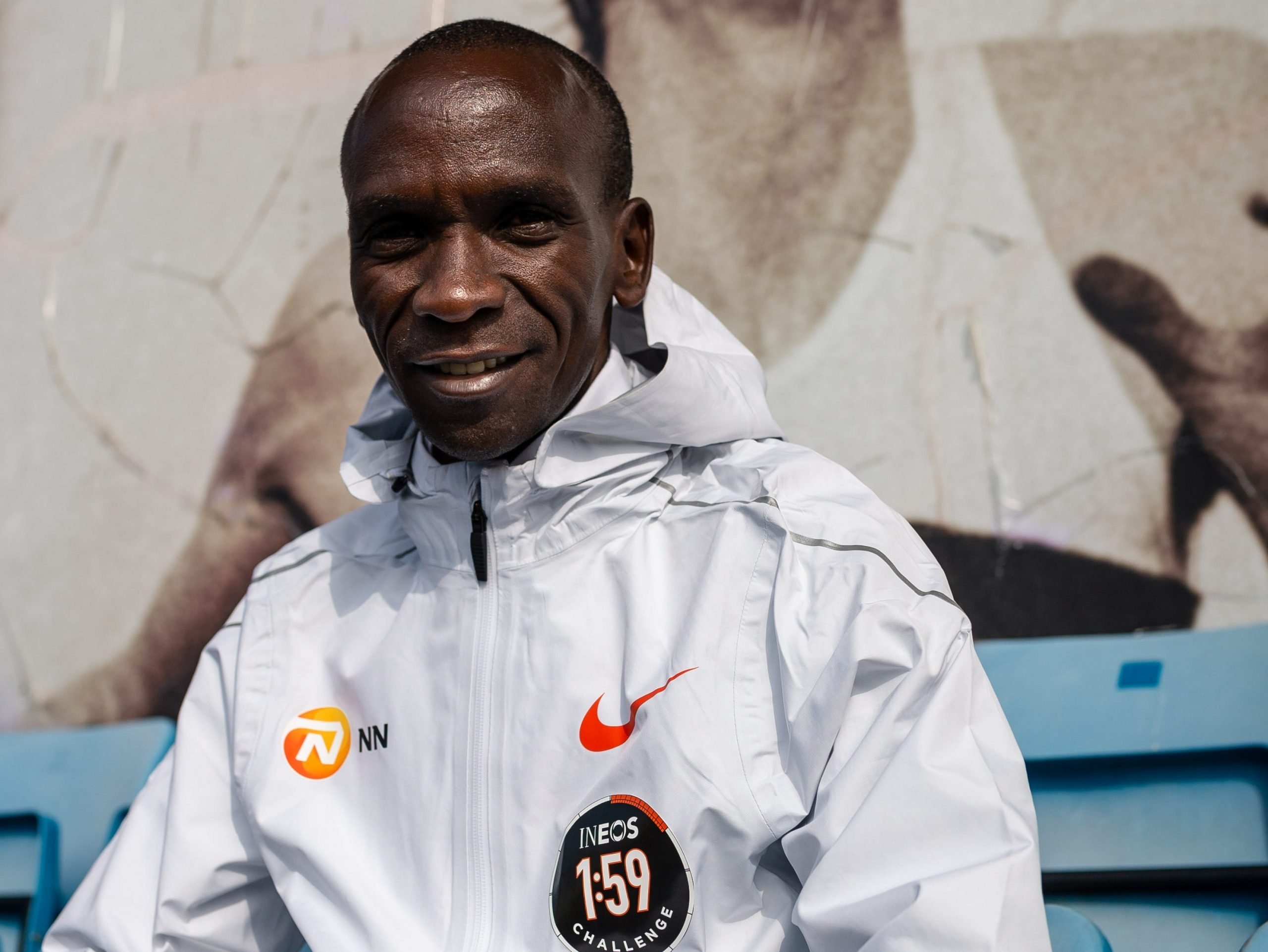
Courtesy of the DDA Group/"The Last Milestone"
For that reason and others, Kipchoge believes new technology should be embraced.
"Being a huge advocate of change and innovation" is part of his recipe for success, he said, along with "working hard, respecting the sport, and taking every day as a challenge."
In a press conference prior to the 2020 London marathon, Kipchoge said Nike's Vaporfly tech was "absolutely" fair, the Guardian reported.
"Development goes hand in hand with technology. The shoe is good. We are doing a press conference virtually, is that not technology? We should accept technology and marry technology," Kipchoge said.
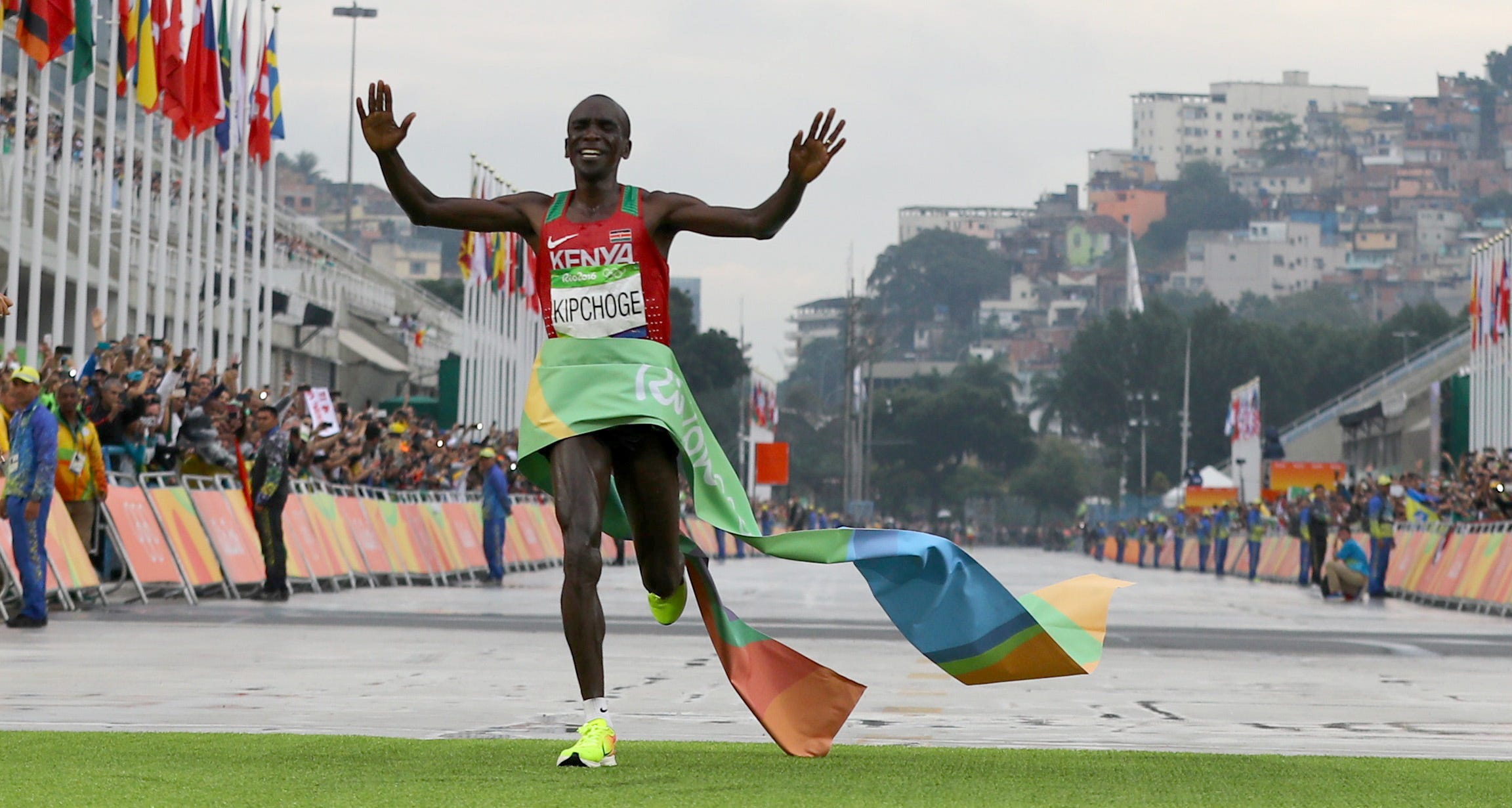
Lucy Nicholson/Reuters
But of course, not everyone agrees.
"It's hard to know what we're actually watching in some respects - is it the technology, or the athletes?" Kyle Barnes, a movement scientist at Grand Valley State University who published a study about Vaporfly shoes, previously told Insider. "I know you have to be an exceptional human being to come close to these achievements, but the jumps we're seeing is the technology."
